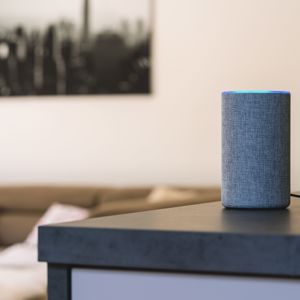
Home Automation is Trending in the Courts
August 10, 2022 11:02 am Leave your thoughts
Any small business with a patented method or product needs a business lawyer to navigate the complex and expensive process of patent infringement litigation. If you aren't familiar with how challenging or costly these types of court battles can be consider the following cases:
- Apple settled 51 out of 92 cases brought by patent trolls or Patent Assertion Entities in three years.
- Sonos sued Google for patent infringement with a team of 26 lawyers and two years later they won.
Why do we see so many patent infringement cases in court between technology companies? In a Verge article, Patrick Spence, CEO of Sonos said that the global audio market sales have reached $89 billion a year. There is profit in patent trolls and tech companies with smaller market share suing big tech companies for patent infringement.
What is patent infringement?
Patent infringement occurs when someone uses the intellectual property protected by a patent, without authorization.
How does one commit patent infringement?
A company that makes, uses, offers to sell or sells a patented invention is in violation of the 35 U.S. Code § 271.
The next hotbed of patent infringement seems to be the home automation market according to DATAQUEST magazine. The steady rise in home automation patent applications is likely related to the expectation that the sector will reach USD$114 billion by 2025. As innovative companies race to put out new products every year, home automation is trending in the courts as well as in homes around the world.
What does an increase in home automation patents mean for innovation?
Companies like Sonos need patents to protect their business. However, patents themselves can be sold or licensed for profit.
In this case, an inventor with a patented process or invention, but not capital or brand recognition to turn a profit, could sell to an established brand that has the resources and distribution to take the invention to market. That buyer would add the patent to their intellectual property (IP) portfolio.
Sometimes, an IP portfolio can reduce competition by preventing startups, or even established competitors, from bringing their innovation to market. A rise in patents in the home automation field could result in a few intellectual property portfolios controlling most of the know-how and production of devices for sale.
Companies plagued by litigation would like to see changes to the patent infringement laws, of course. And, if the trend in home automation cases continues to rise, there is hope for change. Every court case can argue for a change in things such as:
- What is eligible for patent protection?
- Who has control or use of a patent once it's sold?
- How to invalidate a patent?
Whether your business is home automation or not, the increase in intellectual property cases surrounding the industry is something that could have lasting impact on any innovator considering a patent.
Categorised in: Starting a Business in Arizona
This post was written by





